In this introductory guide, What is SEO? SEO meaning and explanation, we are going to look at what SEO is and the meaning of the term. We will start with the basic concepts to learn the basics of SEO and talk about indexing, ranking and website optimization techniques.
Let’s start right away with the definition of SEO!
Table of Contents
SEO meaning and definition
To understand what is SEO and how this set of practices can help you improve the visibility of your site, we need to start from the basics i.e. the term SEO and its meaning.
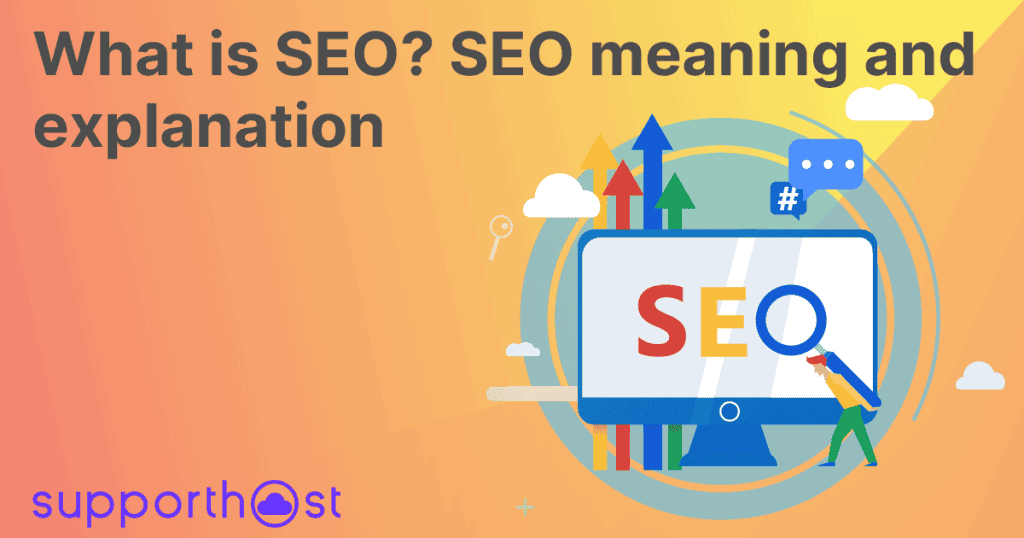
SEO stands for Search Engine Optimization. This optimization activity is about internal site improvements and external factors, so you will hear about on-page SEO and off-page SEO and we will come back later to these two SEO aspects and their meaning.
The goal of SEO strategies is to allow the site to be indexed and rank high in search engine results. We need to open a sidebar to dwell on the differences between indexing and ranking.
SEO the meaning of indexing and ranking
When we talk about SEO and its meaning, we can’t help but first understand terms like indexing and positioning (or ranking).
In your journey to discover SEO and its meaning, you will come across many acronyms such as SEM, SERP or SEA. We’ll come back to the meaning of each one later in this article, for now, let’s briefly dwell on how search engines work.
Indexing is the process by which search engines, for example, Google, include a site’s content in their “index”. In order to include this content or pages within the index, it is necessary to crawl the site. This operation is performed by crawlers.
You can think of a search engine’s index just as a list of all the pages that the bots have crawled. The crawling is done automatically, but one way to help search engines reach all the pages on the site is to submit the sitemap through Search Console or Bing Webmaster Tools.
This is, in short, the process done by search engines when they collect content for inclusion in their index. This index will be looked at every time a search is performed, but how exactly does it work?
SEO meaning and importance of positioning
When someone does a search on a search engine such as Google, the results are shown organized in pages. The set of these results is called SERP, which means Search Engine Results Page.
According to the query, or the search made, the search results are ordered differently based on how relevant they are to the keyword sought. The ranking of a site, or the position it occupies in the SERP with respect to a particular keyword, depends on how relevant the content is to the search.
But how is the ranking determined? The ordering of the results depends on several ranking factors, each with a specific weight that become part of a series of algorithms and is periodically modified and updated.
And here we come to the point where it becomes clear that it’s not enough to understand SEO and what it means, but for site optimization work to be effective over ti
me, it needs to be a continuous process.
The progress made by putting SEO techniques into practice will need to be constantly monitored. They will also need to be periodically updated to keep in line with what are “best practices”. You can learn more by reading our guide on how to perform an SEO analysis of your site.
SEO or SEM: what’s the difference?
It is important to note that there are actually two types of results that appear in SERPs. We can differentiate between organic results and paid results. SEO techniques aim precisely to improve organic positioning and consequently increase traffic to the site.
Next to SEO there is a branch called SEA or Search Engine Advertising which is always part of Search Engine Marketing (SEM) or marketing through search engines. In SEA, however, the field is restricted to paid or sponsored results.
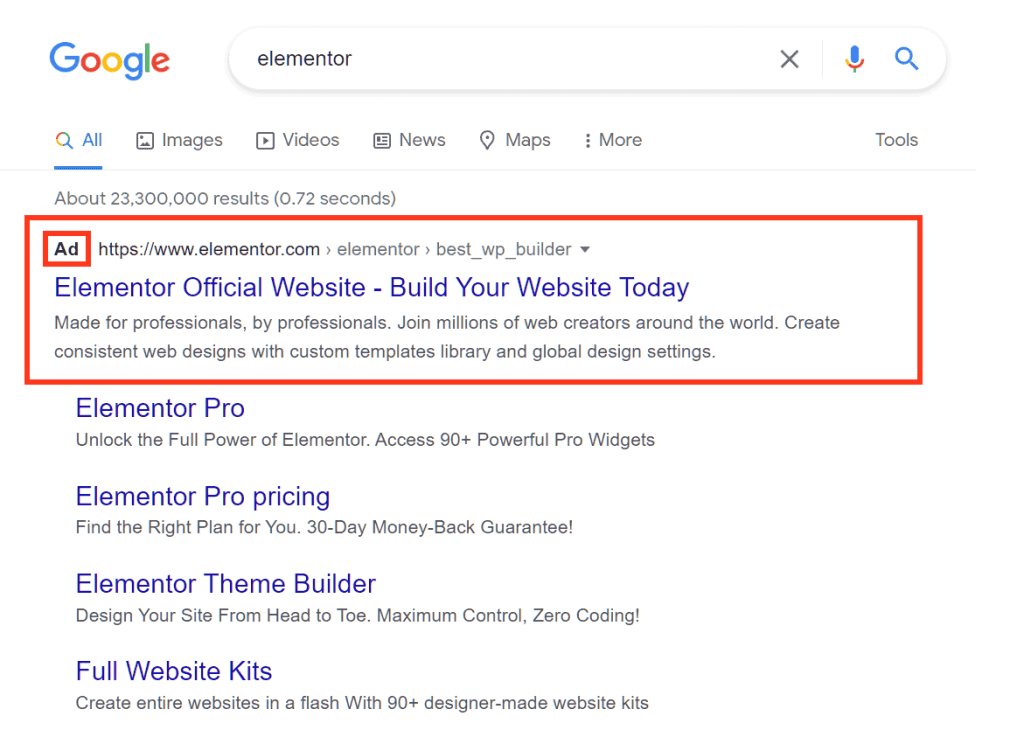
In these two examples you can see how a sponsored result appears on Google (screenshot above) and Bing (screenshot below).
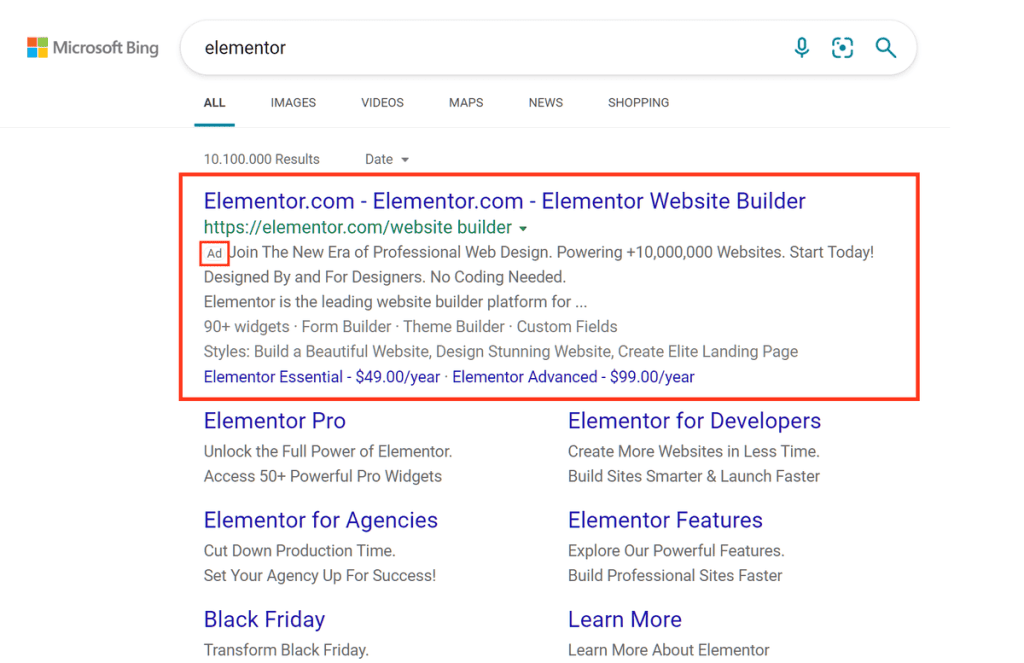
How search engines work
The goal of search engines like Google is to provide a selection of the hundreds (if not thousands or millions) of content on the web. The goal is precisely to provide the results that may be most useful and most relevant to the user who is performing a search.
But how does Google or any other search engine understand what the best results are?
As we mentioned earlier, it relies on complex search algorithms that take into consideration several factors. Even though these algorithms are not made public by Google, there are still some basic guidelines you can start from when optimizing a site.
Content Relevance
One of the crucial steps in SERP generation is the analysis of page content. As we said, the goal is to provide results that match the search made by the user.
In order to evaluate the correspondence between the query and the individual web pages, we first start with the analysis of the query.
Search engines are increasingly able to understand language. This means that they are able to analyze the searched words and also possible spelling mistakes and distinguish those words that can have more than one interpretation.
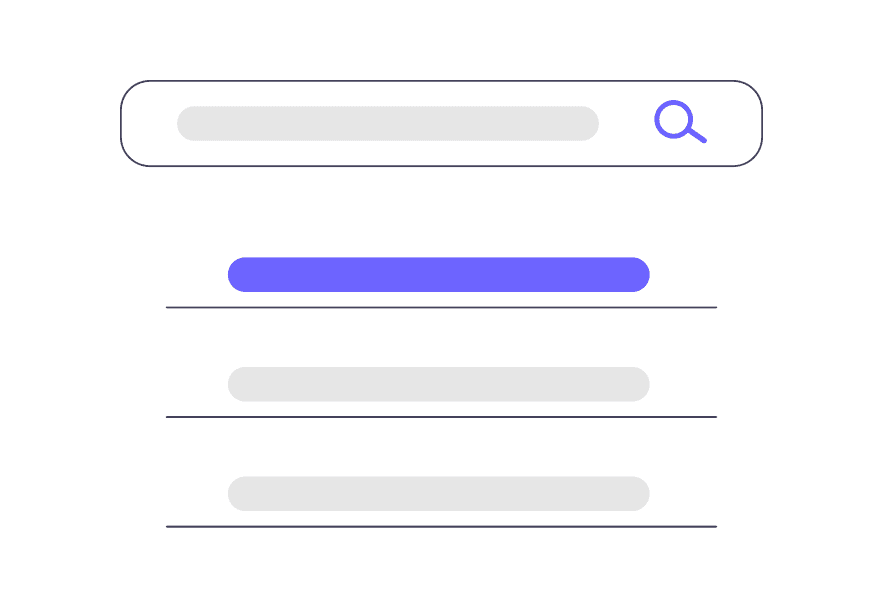
In a few words, the search engine tries to understand what the user’s search intent is and what kind of information they need. Based on these evaluations, it analyzes the different web pages on the topic to find the most relevant one.
In this phase, the presence of keywords, their frequency and distribution in the text are then evaluated.
Remember that the algorithm doesn’t evaluate the simple frequency of the keyword, but analyzes the text and other elements of the page to assess if they are consistent with the search. That’s why you’ll not only hear about text optimization but also how to optimize images for SEO.
In addition to content consistency, another goal of the search algorithm is to evaluate the quality and usefulness of pages. For example, non-useful resources include what Google calls “automatically generated content“, which can be combined content from other pages or even automatically translated text.
User Experience
Another concept that should become familiar to you in order to understand what SEO is and its meaning is that of user experience or user experience. Not surprisingly, Google announced well in advance that user experience would become a ranking factor.
What does user experience on pages depend on? Google focuses on four key aspects:
- the essential web signals (core web vitals) that focus on factors such as site speed
- the optimization for mobile devices, for some time now the policy is “mobile first index” that is the ranking depends on the mobile version of the site
- the site uses the https connection
- which is defined as the “absence of invasive interstitial ads” that is, sites with popups and ads that interfere with the navigation on the page are penalized.
SEO meaning and basics of on-page SEO
When we talk about what SEO is, we can’t avoid dwelling on on-page SEO and off-page SEO.
On-page or on-site SEO refers to procedures that aim to optimize individual pages. On-page SEO concerns the textual content of the pages, the images, the optimization of the HTML code, but also the structure of the site.
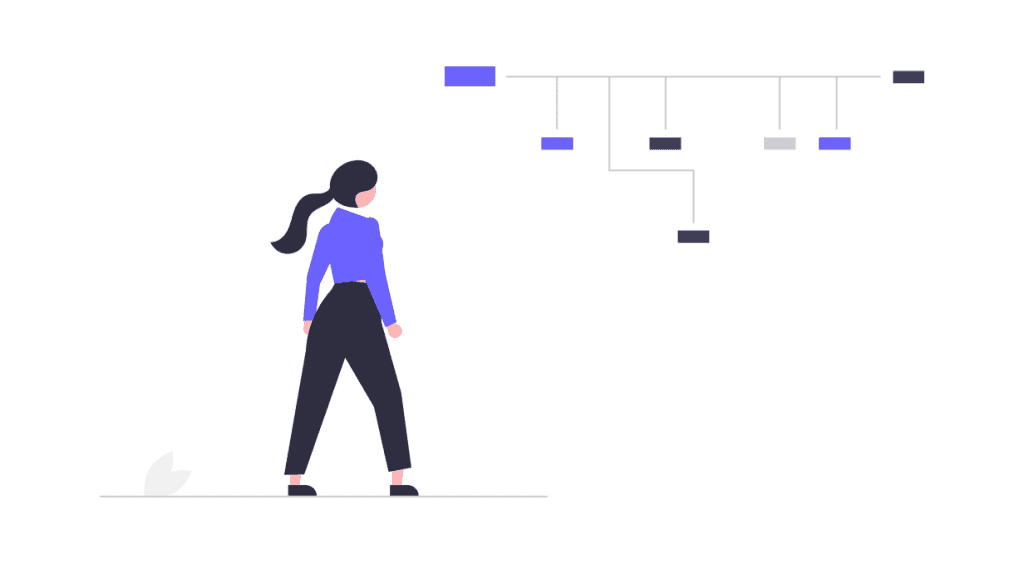
In practice, on-page SEO takes into account the different elements within a web page.
At the heart of on-page SEO is definitely content optimization. As we already mentioned when talking about the way search engines select which pages to show first in search results, the quality of the content is a key aspect.
What can you do in practice to improve your content? Here are a number of elements you shouldn’t overlook.
Choose content type and format
The content can be a blog article, but also a product page or a category. Particularly when we refer to a post, the choice of format (list, guide, case study, and so on) is also important.
Create the content structure
Of course, you’ll have to take care of the content structure as well. For example, when it comes to writing an article for a blog, make sure to use header tags to organize the article in a hierarchical manner.
Other tricks to improve readability are using bulleted lists, and creating short paragraphs to avoid a wall of text. Use images to break up the text and make it lighter to read.
Optimization
Optimization requires some basic steps with some technical tricks of which let’s see a shortlist.
Keyword distribution: you should include the keyword in the title, introduction, meta description.
Don’t leave out URLs: URLs should be short and relevant to the page content.

Optimize images: use alt text (alternative text) to describe image content (not to overuse keywords). Remember also to optimize images to improve loading times and have a fast site.
Link your site’s content: include useful links within your site, either to link to resources within your own site or to provide users with useful resources hosted on other sites. Remember that links transfer value from one page to another, to learn more check out our article on link juice.
Last but not least remember to take advantage of SEO tools, for example, plugin WordPress.
SEO meaning of off-page SEO
The meaning of off-page SEO or off-site SEO refers to all those strategies that allow you to improve the ranking of a website without operating within the site, as we have seen for on-page SEO.
Off-page signals include link building, reviews, and Google My Business tab optimization. These are just a few of the most commonly used techniques to which you can also add strategies aimed at encouraging and increasing the sharing of your content on social.
It is important to note that shares do not have a direct impact on ranking, but they can act indirectly.

Link building and backlink acquisition would deserve an article of their own. In the context of this guide to SEO and its meaning, it is good to understand that you should not only focus on the number of backlinks but especially on their quality.
First of all, link building is the strategy that aims to obtain links (backlinks) to content. In this perspective, we distinguish natural backlinks from artificial ones.
By natural backlinks we mean those links obtained spontaneously: your content is considered of quality and allows you to earn links from other sites.
Artificial backlinks used to try to improve your site’s ranking can be considered a violation by Google and have a negative impact on your ranking.
Conclusion
In this article, What is SEO? SEO meaning and explanation, we have talked about what SEO is, its meaning and its importance in improving organic traffic to your website. To properly understand the meaning of SEO, we started with the basics of indexing and ranking.
We then saw what kind of resources are considered best by search engines and therefore they get top positions in SERPs. Understanding what SEO is, involves understanding what kind of strategies it includes, so we did an overview of on-page and off-page SEO techniques.
Is the meaning of SEO clearer to you now? Let me know in the comments if you have any questions or concerns about the topic.



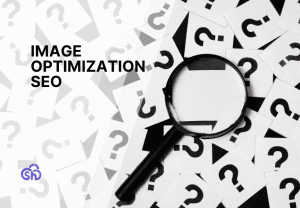
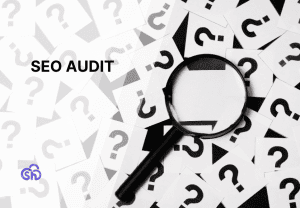
Leave a Reply